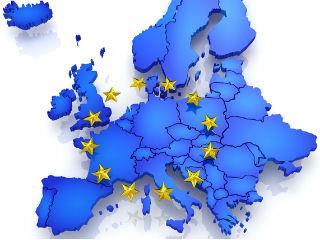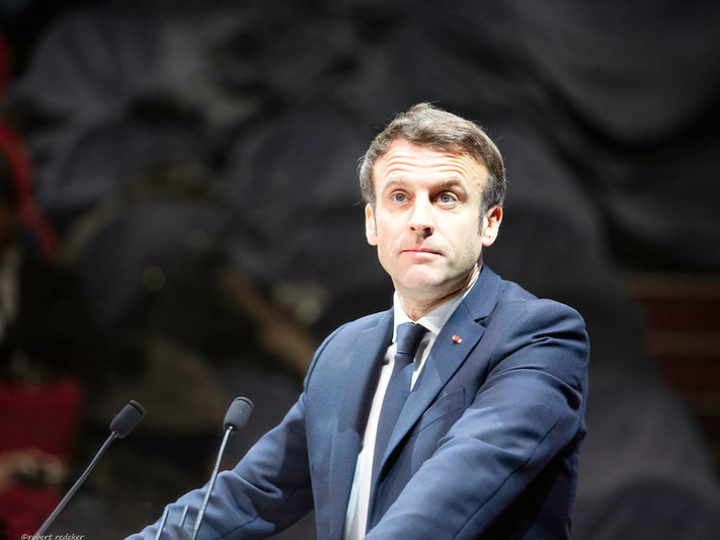Europe's political parties are defined by their place in the Left-Right spectrum, correct? Wrong

Macron wants a eurozone ‘finance minister’ with control of a budget that would dwarf that of the EU. He believes this is needed to close the widening North-South gap between Europe’s rich and poor countries. Although German politicians generally dislike anything that looks like a mechanism for milking German taxpayers, until the elections there had seemed a growing consensus that the Federal Republic’s continued prosperity depends on maintaining Europe’s unity.
by
Giles Merritt*
Elections across Europe show them to be increasingly defined by how nationalistic they are. Confronting this and reinstating progressive politics is essential, and can best be done by giving more power to Europe's regions.
Giving regional leaders sharper teeth in EU decision-making will take years, but ‘bringing citizens closer to Europe' is the only way to diminish the appeal of populism. First, though, the eurozone's weaknesses must be addressed.
Until ten days ago, Europe had a heaven-sent opportunity to start fixing the eurozone's problems, and so ensure that sixty years of hard-won economic and political integration would no longer be vulnerable to an eventual collapse of the single currency.
That opportunity is evaporating. Hopes of a “Grand Bargain” for reforming the eurozone, and with that the EU's ramshackle institutional framework, were largely based on a revival of the Franco-German ‘locomotive’, the partnership that for many years drove the EU forward. These hopes faded with the poor showing of Chancellor Angela Merkel's CDU party when so many voters flocked to support the anti-EU, anti-immigrant Alternative for Germany (AfD) party.
A eurozone deal may still be possible once Merkel has formed her new coalition government, even if the odds against achieving this have lengthened. Merkel and Macron see eye to eye on the need to make the euro a cohesive rather than divisive force, but know the devil is in the detail.
Macron wants a eurozone ‘finance minister’ with control of a budget that would dwarf that of the EU. He believes this is needed to close the widening North-South gap between Europe's rich and poor countries. Although German politicians generally dislike anything that looks like a mechanism for milking German taxpayers, until the elections there had seemed a growing consensus that the Federal Republic's continued prosperity depends on maintaining Europe's unity.
Thanks to the election, however, the outlook for a eurozone deal is going to be unclear for months to come; it's sure to be the primary focus of political attention in Europe, dwarfing even Brexit. Yet addressing the nationalism that has brought hitherto obscure populist parties to the fore will be far more important in the long-term.
If EU integration is to be blocked by nationalist pressures, then Europeans must resign themselves to losing clout and competitiveness in the global economy. An awareness of this is producing fresh ideas for streamlining the EU's structures and countering its unpopularity, notably from European Commission president Jean-Claude Juncker and Emmanuel Macron. So far, none of these ideas address the most obvious reason for people's disaffection - their sense of being governed by distant powers.
Regionalism, not to say separatism, has become a predominant force in Europe because voters perceive a centralisation of policymaking, by their own national governments and, above all, by the EU. The deepening Catalan crisis and the unresolved question of Scotland's future status spearhead a wider discontent embracing northern Italy, Flanders, the Basque country and perhaps Northern Ireland.
The answer is to create a muscular new regional body within the Union's institutional framework. The toothless and much-ignored Committee of the Regions should be scrapped in favour of a mechanism that brings regional leaders and representatives to Brussels, and arms them with the sort of powers most central governments will want to resist.
Some German politicians’ recognise that the eurozone must be safeguarded at all costs, even if that's unpalatable. By the same token, EU member governments must see that empowering their regions is crucial to reining back the appeal of populist parties, and thus vanquishing Europe's new nationalism.
*Giles Merritt is Founder and Chairman of Friends of Europe
**First published in www.friendsofeurope.org 

